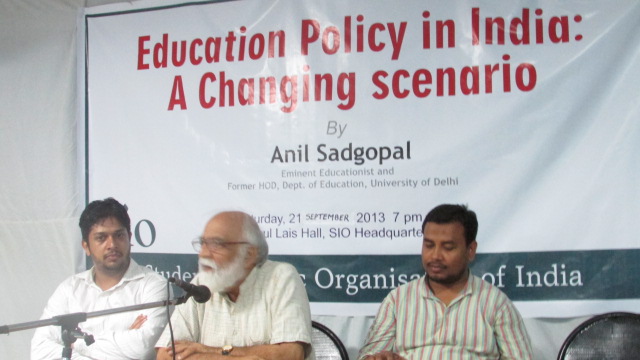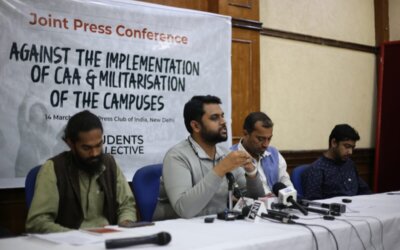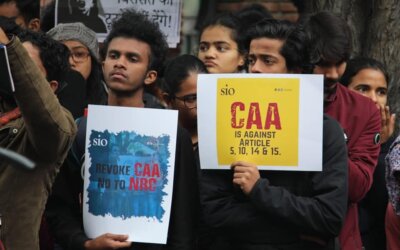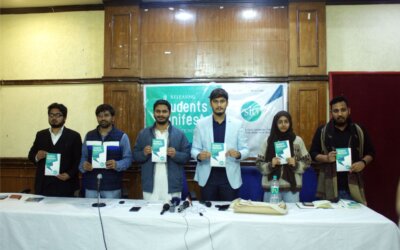Renowned scholar and educationist Anil Sadgopal addressed the gathering of students and youths here at the Abul’Lais Hall of the Headquarters of SIO on September 21st, 2013. He was scheduled to speak on “Education policy in India: A Changing scenario”.
Brother Shariq Ansar, National Secretary, delivered the objective of the given topic, its importance and background and warmly welcomed the senior retired professor for having found time to visit the SIO office despite being busy schedule.
Mr. Anil Sadgopal started off with his play of sharp memories of the dwindling educational expenditure by the government of India and policy transformation in the last decades. He fast closed on to the current crisis in the government run schools where the unfortunate facts are such that various municipal bodies like the Mumbai Municipal Corporation and even states like Uttarakhand and Madhya Pradesh have now taken recourse to selling off the school buildings. Quoting Arundhati Roy he said we once lived in a nation which has now sadly become a corporation. He recalled the falling percentage of GDP spent on education since the onset of globalization, which for many years now has come to be stagnant at 3.5% per annum. He also pointed to the pitiable state that potable tap water and drinking water has ceased to be commonly available long back while providing quality education as ‘fundamental right’ is now under threat at the dictum of the World Bank and IMF.
The issue of Right to Education is critically linked to the Common School System founded on the principle of ‘neighborhood schools’. In 1966, the Kothari Commission had argued that such a system was necessary to build a socially cohesive society. All children in a given neighborhood, drawn from diverse backgrounds, should be able to study and socialise together in a common public space. This has been the organising principle of school education in G-8 countries like the USA, Canada, France, Germany and Japan.





0 Comments